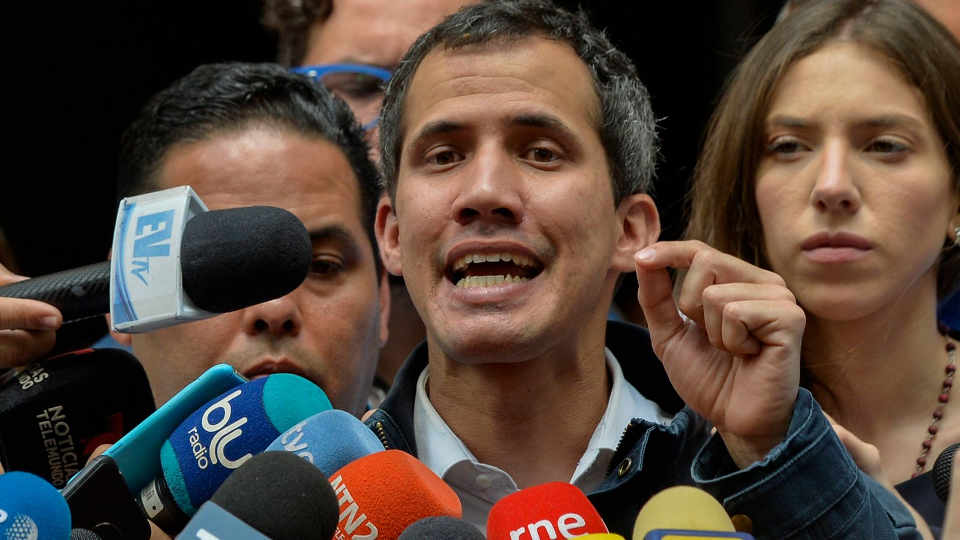The government of Spain is on the fence over whether or not to officially recognize Juan Galdó as president of Venezuela after his surprise proclamation last week.

Spain’s Foreign affairs minister Josep Borrell saying his cabinet is reluctant to ‘take impulse decisions’.
Borrell says Spain will wait to see what the European Union’s verdict is before making an official statement, in the interests of ‘unity’ across the continent, or at least the 28-country bloc.
Borrell says that at present, his government’s ‘main concern’ was ‘the situation for the Spanish diaspora’ in Venezuela, who include people of Venezuelan parents born in Spain and who had moved back there in adulthood, or Venezuelans who had returned after acquiring Spanish citizenship during a time in Spain, as well as native Spaniards who had emigrated to the South American country.
While Spain’s central government is considering the issue, Spain’s right-wing opposition has largely followed suit of the United States, Canada and the Lima Group of countries in recognizing Guaido as Venezuela’s ‘legitimate’ leader.
“Maduro is a dictator who has usurped power at the expense of misery and brutal repression of the Venezuelans, and he should leave the government immediately,” Pablo Casado, leader of PP, tweeted at on Wednesday.
Vox’s leader at national level, Santiago Abascal, in ‘asking’ Prime Minister Pedro Sánchez to ‘urgently’ recogisned Guaidó’s presidency.
“We Spaniards who love freedom must show our support today for the Venezuelan people,” he tweeted. “Down with the pro-Chávez tyranny! Long live a free Venezuela!” he concluded, referring to Maduro’s predecessor Hugo Chávez who died from cancer.
Abascal, whose party has just 12 seats in Andalucía’s regional government but none in the other 16 federal Parliaments or in national government, also retweeted US Vice President Mike Pence’s message: “As the good people of Venezuela make your voices heard tomorrow, on behalf of the American people, we say: estamos con ustedes [we’re with you]. We are with you. We stand with you, and we will stay with you until Democracy is restored and you reclaim your birthright of Libertad [Freedom].”
In cyberspace and outside the Casa de América in Madrid, thousands of Venezuelan expats living in Spain gathered in the capital’s central Puerta del Sol square, bearing their national flags.
Juan Guaidó declared himself ‘interim president’ on January 23, 2019, during mass protests in the Venezuelan capital, Caracas, against Nicolás Maduro’s régime – demonstrations during which 13 people were killed.
Guaidó addressed the crowds, swearing to ‘formally accept the competences of the presidency’ and calling Maduro an ‘illegitimate’ leader and the pro-Chávez, or chavista government ‘usurpers’.
Maduro started his second term of office at the beginning of this month. He was elected on May 20, 2018 and which his dissidents considered ‘fraudulent’.
Guaidó says he wants to ‘implement a government of transition’ to democracy and hold ‘free and open elections’.
“We know this is nothing to do with just one person; we know this is going to bring consequences; we know what’s needed to keep us in the streets of Venezuela until we achieve democracy,” Guaidó announced.
He spoke of an ‘unstoppable process’ to restore democratic rights and for ‘hope’ to be ‘reborn’.
Guaidó had been arrested on January 13 for heading up an anti-Chávez speech, but was released after a few hours.













